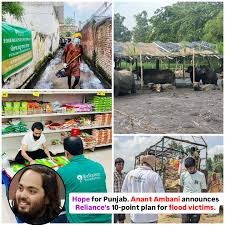
Vantara Rapid Response Team: Bringing Help & Hope Across Punjab
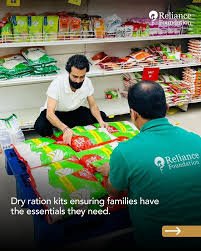
Vantara is known for rescuing animals, preserving wildlife, and supporting communities during crises. Its Rapid Response Team (RRT) takes this mission even further by reaching people and animals in urgent need, especially during floods, natural disasters, or when conflicts between humans and wildlife happen.
Here’s everything you need to know about how Vantara’s Rapid Response Team works in Punjab, its achievements so far, and how it is making a real difference.
What Is Vantara’s Rapid Response Team?
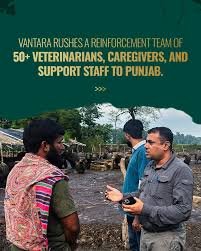
- A special unit of rescue experts, veterinarians, volunteers and animal caretakers.
- Ready to respond fast in emergencies — floods, strays, injured wildlife, livestock in distress.
- Equipped with medical kits, transport vehicles, rescue tools, and veterinary support.
- Works closely with local authorities, village councils, and animal husbandry departments.
How the Team Operates in Punjab
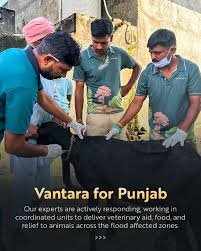
- Early Warning & Alerts
When heavy rain or flood warnings are issued, the RRT monitors risk zones. Villagers are given alerts, and rescue planning starts in advance. - Animal Rescue & Care
Injured or trapped animals (both wild and domestic) are rescued. They are treated, rehabilitated, and when possible, returned to safe environments. - Livestock Support
For farmers and rural households, the team provides medical care, fodder, vaccination, shelter support for their animals during emergencies. - Human Relief Efforts
The RRT helps people too — evacuations, safe shelters, medical first aid, distribution of relief materials. - Awareness & Prevention
Educating local people about how to avoid wildlife conflict, how to protect livestock, how to respond during floods. Also advising on safe practices.
Key Impact of Punjab Floods
The Rapid Response Team has been actively working in Punjab during the recent floods. The situation has affected both people and animals on a massive scale.
Below is a quick summary at the situation:
| Key Impact of Punjab Floods | Current Status |
|---|---|
| Villages Submerged | 1,200+ |
| People Affected | 2.5 lakh+ |
| Animals Displaced | Thousands |
| Immediate Relief Needed | Food, shelter, medicines for humans & animals |
Recent Case Stories from Punjab
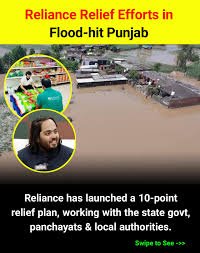
- Flood Relief Operation: During the recent floods (mention months/dates), Vantara’s RRT reached many villages. They rescued livestock trapped in water, set up temporary medical camps for animals, distributed fodder, and helped families evacuate safely.
- Stray/Wildlife Rescue: Reports came in of injured stray animals / wild birds hit by storms. The RRT responded within hours, provided first aid and arranged transport to treatment centers.
- Livestock Vaccination Drive: In flood-affected districts, the team vaccinated many cows, buffaloes, goats to prevent disease outbreak. They also distributed silage and clean water to ensure the animals stay healthy.
Why This Work Matters
- Protecting livelihoods: Many in Punjab depend on livestock. If animals die or get sick, families lose income, food, and security.
- Animal welfare: Wild animals caught in human areas or injured need immediate help. Without trained responders, suffering increases.
- Preventing disease outbreaks: Sick or stranded animals during floods can cause health hazards for humans and other animals. RRT’s medical and vaccination efforts reduce risk.
- Reducing human-wildlife conflict: When wild animals stray due to habitat loss or natural disasters, conflicts happen. Rescue and safe relocation can prevent harm to both wildlife and humans.
How You Can Help
- Report animal emergencies early contact the local office or RRT hotline.
- Support relief fund drives or donate for rescuing gear & medicine.
- Volunteer locally in awareness campaigns during flood seasons.
- Follow safe practices around wildlife: keep distance, don’t try to rescue wild animals without expert help.
Conclusion
Vantara’s Rapid Response Team is doing crucial life-saving work in Punjab. Their efforts not only rescue animals and protect people but also preserve the balance between nature and human communities. With stronger support, proper resources, and timely action, even more lives human and animal can be saved.
Read Also Why Vantara is Not Open to the Public: Everything You Need to Know


 Previous Post
Previous Post